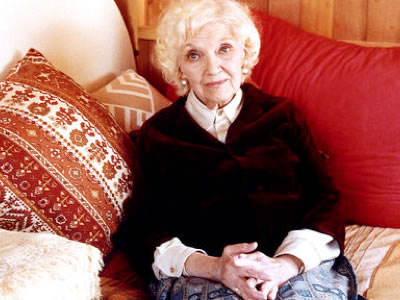Jean Rhys: an unfinished autobiography
The Irish Press 1980
Jean Rhys died earlier this year, in her late eighties, after a lengthy and painful illness. Her reputation as one of the greatest novelists of her time, and the only major prose writer to come out of the West Indies, rests on a small cluster of novels published in the Twenties and Thirties, and principally on Wide Sargasso Sea, published in 1966, and hailed by the critics as a masterpiece.
Her output was small for such along life. In the earlier novels she explored the vicissitudes and loneliness of her characters against the background of a drifting life in Paris and London. But in Wide Sargasso Sea the setting shifted to the islands of the West Indies where she was born and brought up. The novel took years to write, for Jean Rhys was a perfectionist and would not let a work leave her hands until every last word was scrutinised. It is this exactitude and sense of style which shine forth in Smile Please, an unfinished autobiography, on which she had been working before her death.
She was born Ella Gwendolen Rees Williams sometime in the early 1890s, of a Welsh father and a Creole mother, on the island of Dominica. She speaks of her upbringing in the sepia-tint vignettes of childhood which comprise the first part of the book – her loneliness as the daughter of the local white doctor, her retreat into the ‘real’ world of books, portraits of her parents and nurse, accurate, incisive descriptions which cohere to a picture of colonial life of the period as it will never be lived again:
‘The safe had each of its legs planted in a little cup of antiseptic to protect the food from ants, like baby’s legs in badly fitting socks. There was the knife-cleaning machine which my father ordered because he thought it was a shame that a woman should have to do such bloody work as cleaning knives on a board.’
She left Dominica when she was sixteen, went to London and became a chorus girl. She remembers seeing Augustus John in the Crabtree Café in Soho. She has affairs, hangs around Bloomsbury, marries and goes to Paris. She begins to write at the instigation of Ford Madox Ford. Here we have her at The World’s End, Fulham: ‘Oh, God, I’m only twenty and I’ll have to go on living and living and living. I knew then that it was finished and that there was no more to say. I put the exercise books at the bottom of my suitcase and piled my underclothes on them. After that wherever I moved I took the exercise books but I never looked at them again for many years.’
The fragments from her diary, in the form of a dialogue with the self, which comprise the latter half of the book, reveal the doubts and fears of a writer in her mature years, her distrust of England, her adopted country, and the same keen solitude nurtured half a century earlier – perhaps a key to the twenty years of silence she maintained in Cornwall after the publication of Good Morning, Midnight in 1939. The critical success of Wide Sargasso Sea never flowered into popular acclaim, but as Jean Rhys herself tells us in this, her last book – ‘others? I do not know them. I see them as trees walking.’